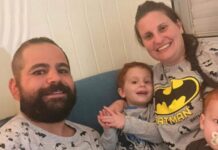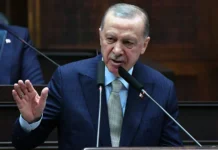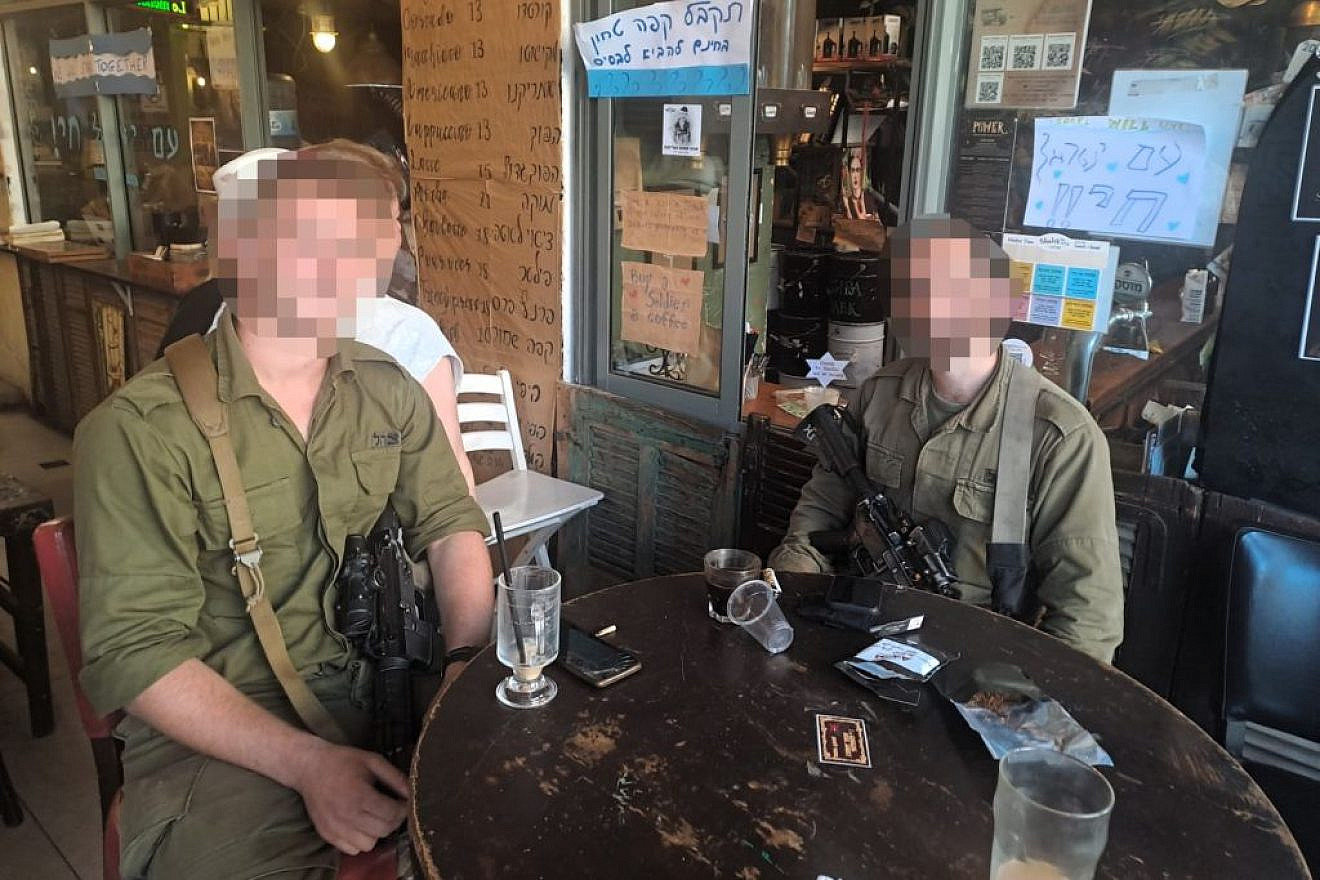“When we first got there, there were terrorists still alive, some dead… a lot of injured soldiers, dead soldiers, dead civilians, bodies everywhere.”
These are the words of D., a member of the Israel Defense Forces Sayeret Haruv special forces unit, which on Oct. 7 was sent into Kibbutz Be’eri, one of the many Israeli towns that had been overrun by Hamas terrorists. An estimated 130 residents were killed and around 50 were taken into Gaza as hostages.
D. was having coffee with another member of the unit, L., at a cafe on Agrippas Street in central Jerusalem on Monday, across from the city’s famous Mahane Yehuda outdoor market. On 12-hour leave, they were both still in combat fatigues, and it was easy to tell from their appearance that they had recently been in combat.
The identities of IDF special forces—like those of combat pilots—are classified. But one aspect of both soldiers’ identities that can be revealed is that both are Americans who came to Israel to serve in the IDF. They are what is known in Israel as “lone soldiers,” individuals serving in the military who have no family in the country.
D. was 18 when he enlisted. He was born in Israel, but his family moved to the United States. He came back to serve in the IDF.
L. grew up in Scarsdale, New York, and was already 23 when he began his military service. This is no easy feat for someone going into one of Israel’s special forces units. The extra five years in age makes a significant difference; it’s difficult to keep up with 18-year-olds.
“All of Saturday night and through Sunday, the entire night was basically a 14-hour battle,” said L. “Automatic [weapons] fire, machine guns, also explosions as Hamas was shooting rockets at the kibbutz. The battle for Be’eri lasted until Sunday, and then we were there for a few more days.”
“When we got there we helped evacuate civilians, and ZAKA helped with the bodies,” he added. ZAKA is the Israeli organization that deals with human remains after accidents and terror attacks.
The two soldiers are both religious and were off for the Simchat Torah holiday on Oct. 7. They were back on base by 2 p.m.
By Saturday night, only hours after leaving their homes, they and their unit were already in the thick of the fight at Kibbutz Be’eri.
Their unit fought for 48 hours until the kibbutz was officially declared cleared of terrorists.
It is only due to the bravery of young men like these that there was not a greater disaster on Oct. 7. They saved many lives—both civilian and military—and eliminated hundreds of terrorists who will no longer be able to murder innocents.


























